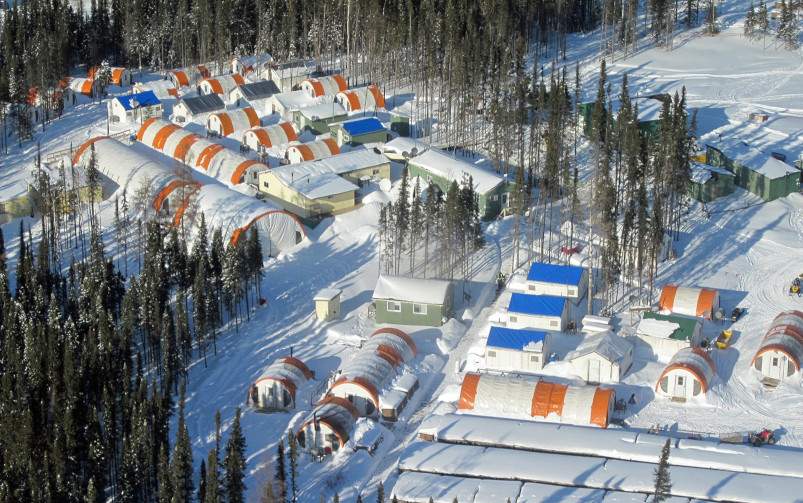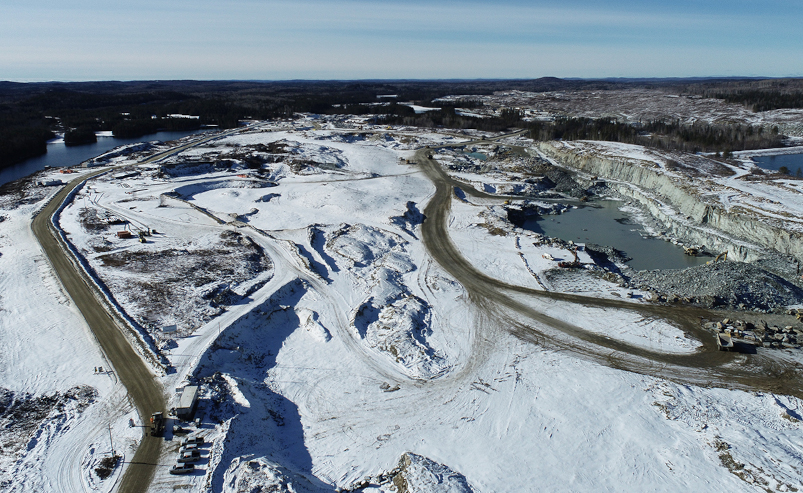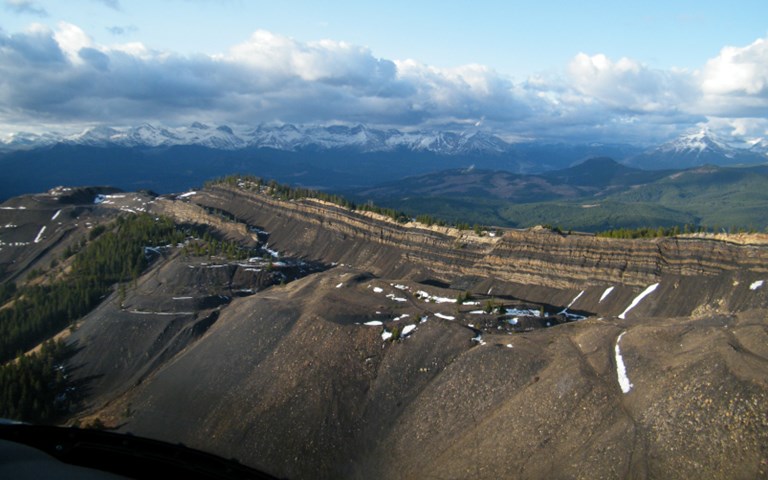The Grassy Mountain project was projected to produce 4.5 million tonnes of coal per year. Courtesy of Riversdale Resources.
On August 6 the Federal government issued a decision to prevent Benga Mining Limited’s Grassy Mountain coal project from continuing due to its likelihood of causing significant adverse environmental effects.
After careful deliberation and review of available and relevant information – which includes a June 17 report from the Joint Review Panel (JRP) of the Alberta Energy Regulator that also denied the project – the Minister of Environment and Climate Change, Jonathan Wilkinson, concluded the potential environmental impacts of the proposed steelmaking-coal mine in Crowsnest Pass, Alberta are not justified in the circumstances. “The Government of Canada must make decisions based on the best available scientific evidence while balancing economic and environmental considerations,” Wilkinson said.
The Grassy Mountain coal decision statement, which was issued under the auspices of the Canadian Environmental Assessment Act, 2012, concluded that allowing the mining project to likely “cause significant harm” to surface-water quality due to selenium effluent discharge; species like the Westslope Cutthroat Trout and the Whitebark Pine (which are already listed as endangered under the Species at Risk Act); and the physical and cultural heritage of the Kainai, Piikani and Siksika First Nations.
In response to the decision, Benga CEO John Wallington said that it was beyond comprehension that the minister’s action was taken without consultation with First Nations, with the company or with other communities impacted. The Stoney Nakoda Nation and the Piikani Nation both supported the project.
Related: Glencore emphasizes environmental positives of becoming sole owner of the Colombian thermal coal mine
The government, however, reported that it engaged in consultation with Indigenous communities throughout the environmental assessment. In total, the Impact Assessment Agency of Canada said that 14 groups participated in the process, and they were allocated funding of $714,704 to support their participation in the various steps of the review.
Wallington’s primary reason for objecting to the federal government decision, however, is focused on the JRP. On June 19 Benga filed an application for permission to appeal the JRP’s decision to the Court of Appeal of Alberta, with the company saying that the decision by the panel displays errors of law and procedural fairness that warrant the granting of permission to appeal. Following the JRP report, members of the Stoney Nakoda First Nation and the Piikani Nation similarly filed requests with the Alberta Court of Appeal to appeal the decision that blocks the development of the project.
According Wallington, Minister Wilkinson’s decision to deny the project before the appeal could be heard in court was a “precipitous step.”
“By ignoring Benga’s legitimate request that he hold his decision in abeyance whilst the legal appeal process runs its course, the minister has ridden roughshod over the legal rights of Benga, Piikani Nation and Stoney Nakoda Nations, adversely affected economic interests, and relied on a JRP report that is the subject of multiple legal challenges,” Wallington said in a statement.
The proposed steelmaking-coal mine in Crowsnest Pass, Alberta, was projected to produce around 4.5 million tonnes of processed coal per year, over a mine life of about 25 years.




